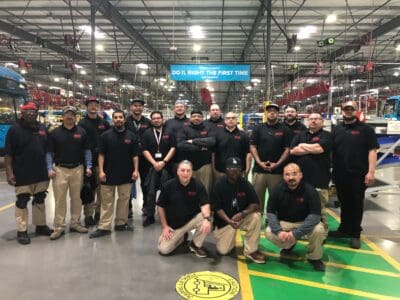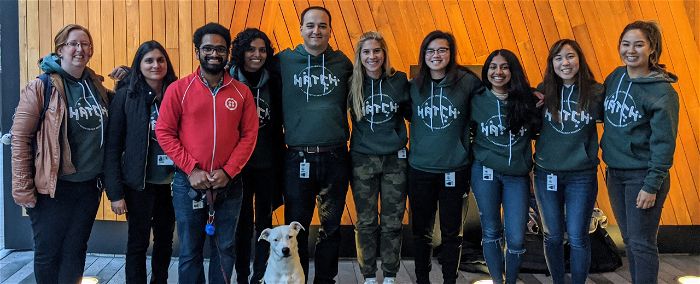The Future Is Bright
JFF and its partner Keystone Development Partnership provided the technical assistance and financial support needed to run the BYD-SMART program.
“It’s helped increase BYD’s productivity and efficiency. There’s less re-work being done because of the training that’s being offered,” Scott said. “It’s been positive for the workers too. They are getting raises and earning credentials through the program.”
During the 18-month IMT apprenticeship, apprentices work with their mentors to learn precision metal work, welding, electrical wiring, assembly of mechanical systems, and other skills necessary to produce electric buses. Apprentices also take classes in safety, blueprint reading, and lean manufacturing.
“It’s really designed to take entry-level workers and get them up to a competent level of proficiency,” Scott said. Four cohorts of apprentices have participated in the program, and 32 people have completed it. Antelope Valley College offers apprentices college credit for their work. The IMT apprentices and their mentors – all completers of the program – wear custom polo shirts while working, which helps drive interest in the program, Scott said.
The apprenticeship is open to new employees and incumbent workers who may lack formal training. The Joint Apprenticeship & Training Committee also partners with two local pre-apprenticeship programs, which help underserved populations in the region prepare for employment in the advanced manufacturing industry.
Scott said the future is bright for BYD and the apprenticeship program. The company plans to expand its workforce, and the IMT apprenticeship will remain a critical element in training BYD employees.
If interested in inquiring about incentive funds, please contact senior program manager Becky Calwell at bcalwell@jff.org to find out more.




